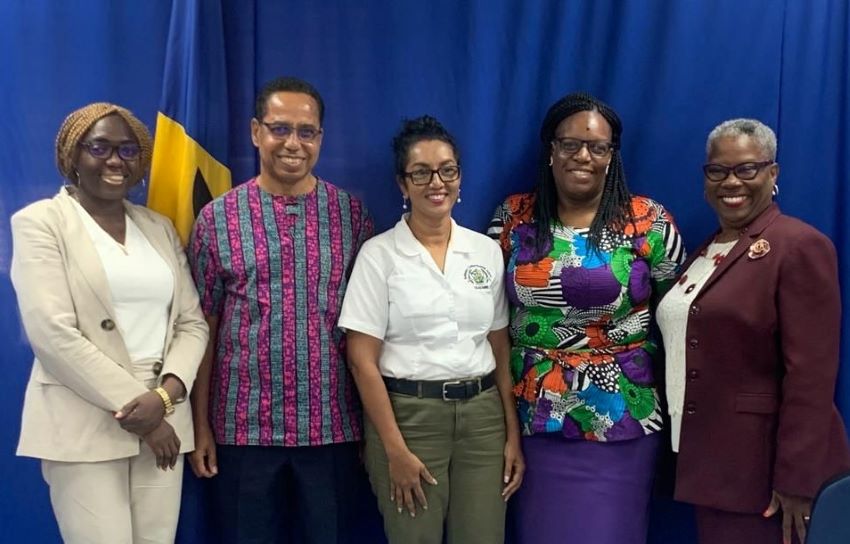
Teachers from Belize and Dominica have been instructed on the virtues of the Secondary School Teachers’ Attachment Programme, a two-week exchange programme, organised by the CARICOM/CSME Unit, in association with the European Union (EU), that got under way today.
Ambassador to CARICOM, David Comissiong, outlined the significance of the programme, as he welcomed the delegates to Barbados, in a meeting at the Ministry of Education, Technological and Vocational Training, Elsie Payne Complex, Constitution Road, St. Michael.
“The CARICOM Secretariat and the European Union could not have chosen a better category of skilled worker to start this programme with than the class of teachers because not only will they be getting the hands-on experience of participating in the Skills National Programme but they will be interacting with perhaps the most important segment of our population – our school-aged population.
“And, by their very presence in Barbados and their interaction with the students in the classroom, they will be teaching the students some very important and practical lessons about Caribbean integration and the importance of Caribbean integration,” Ambassador Comissiong stated.
Adding that Caribbean integration needs to have a bigger presence in our school curriculum, he said the experience of the teachers over the next two weeks would prove a useful and practical experience “that would no doubt help to shape their thinking about how best Caribbean integration could be better integrated into the school curriculum”.
Calling the movement of people “really the heart and soul of the Caribbean integration process”, he stressed: “In this 50th year of the existence of CARICOM, it is good to see that this critical element of integration, the movement of people, is getting the attention that it deserves.”
The CARICOM Ambassador noted there were now 12 categories of skills with the two newest categories added to the pre-existing 10 being ‘agricultural workers’ and ‘security officers’.
Meanwhile, Dominican teacher Roseline Matthew, from Portsmouth Secondary School, speaking on behalf of her counterparts, said: “I am very thankful to God first and the EU and the CARICOM Secretariat for really organising this session for us ….
“I think it is excellent because if we are talking about integration and having CSME move, then as the CARICOM Ambassador said, ‘we have to travel; we have to move; we have to meet each other; we have to integrate, and so far, one challenge of CARICOM that I know, that I teach, is the whole problem of insularity.
“And, so far, I can say, from meeting with my host, meeting with officials of the Ministry, meeting with persons in the community, it is splendid. It is welcoming, it’s hospitable, and if we are going to have a CSME that works, we have to learn to love; we have to learn to share; we have to learn to accept each other; we have to learn to accept diversity….”
Meanwhile, Deputy Chief Education Officer, Joy Adamson, disclosed that the teachers on the exchange programme have all opted to stay with families, “immersed in communities” as opposed to in hotels.
For the next two weeks, the delegates here, as well as Barbadian teachers, Marko Scantlebury of St. George Secondary, and Tranette Belgrave of Alleyne School, on attachment to St Kitts & Nevis, will share best practices and knowledge in relation to the CARICOM Single Market and Economy to their counterparts.
